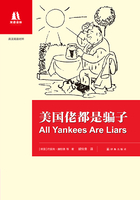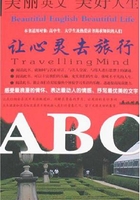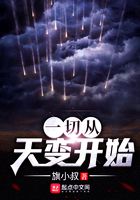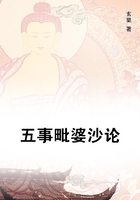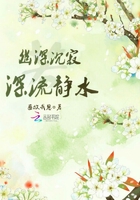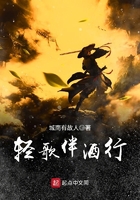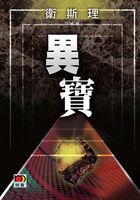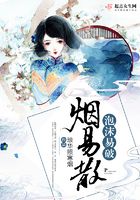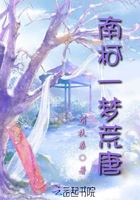Even once Axiang went to the mountains, he was forbidden to realise his dream of joining the East River Column, on the grounds that he was too young and too small. Instead he joined the "Young Devils", becoming the head of a team. Equipped with only a rice sack for his belongings and a barrel-loading rifle, he commanded a troop several tens strong along clear, logical lines of thought. Wherever they went he was sure to have scouts ahead, and a rear-guard behind. At night he would post someone to guard the camp, no sleeping allowed whilst on duty; after every camp, he ordered his fellow Devils to sweep the ground clean and leave no trace of their passing . . . It was a hard existence, the guerrilla area offering no base of operations. All they could do was hide in the mountains and seize whatever opportunities presented themselves.
An ancient Chinese military manual says:"Before marshaling troops, you first need to secure your food supply." Securing enough food for the guerrilla troops was an arduous and complicated task. Axiang often single-handedly stole into enemy-held areas, a child like him unlikely to arouse the attention of guards. One day after he snuck into Hekou to steal food for his troop, he visited a communications post run by a local village head surnamed Zhu. Zhu was a rich peasant, whose family owned a small shop, but he was also a member of the Party underground. Suddenly, Zhu got a feeling that something was wrong, and hurried out to see what was happening. The atmosphere in the village was tense; he stopped a villager and asked:"What's going on out there?"
The man hastily replied, "Soldiers are coming!"
"What colour are they wearing?"
"Brown!"
It was the enemy! (Our side had no uniform, so most just wore grey clothes.) The area was under strict surveillance; since Axiang had left home, Duimen had been placed under curfew seven or eight times. This time, however, they were quicker than usual. It later turned out that someone had informed the army that a Commie had entered the village. Mr. Zhu told Axiang to hide, but Axiang said "That won't work; it looks like they've come prepared. If I've been exposed, it's too dangerous for you if I stay here. I'll have to escape."
Mr. Zhu said:"You don't know the roads around here, and they've got the village surrounded. What if they catch you?"
"There's no time to lose, I have to go. I'll leave now, you wait a few minutes then follow me. If I don't go, you'll get dragged into it as well" replied Axiang. So saying, he slipped into a shed at the back of Mr. Zhu's home, burnt the documents he was carrying and left via the back of the village. In front of him was a small river, beyond which lay escape. Axiang rolled up his trousers and began to cross.
"Don't move!" A man shouted out from near him, then fired off a warning shot. Axiang turned to look, and saw a soldier dressed in brown marching over, holding a rifle. The enemy had posted a sentry in the thicket. From his accent he clearly wasn't a local. Axiang remained calm.
"What are you doing?" the soldier asked.
"I'm a student" said Axiang, pointing to the satchel on his back, "I live in the village."
"Student? You should be studying then. If you're not at school, what are you doing sneaking around here?"
Axiang showed him a nightsoil basket he'd taken from the Zhu family's shed:"School's finished, I have to take this out to the field and put it on the crops." He pointed at the field of grain across the river. The soldier looked across, and still half suspiciously waved him over. Mr. Zhu, however, was arrested in his home.
Once he was out of danger, Axiang began to run. But where should he go? At once he thought of home, and ran straight there. His second brother saw him return, and knew something had gone wrong. Once he found out what had happened, he said scared:"It's not safe here either. Lately the landlord's been going around, armed to the teeth, saying he'll kill any Communist he finds. He's gone crazy!"
Axiang said:"I won't be here long, I just want to see Mother, as soon as you know where Xie Guoliang's troop has gone, I'll go and join up with them." He left two days later to find Xie, and never returned until after the foundation of New China. When he finally returned at the end of 1949, he was a grown man.
By 1949, Kuomintang armies north of the Yangtze River had been all but wiped out, but the battle in the south raged on. Small bases and roving bands were scattered around the countryside. Whenever the enemy attacked in force, Communist troops would scatter and melt into the terrain, soldiers disguising themselves as peasants or woodcutters, occasionally attacking and disappearing as quickly as they came. Meanwhile the Central Committee's Hong Kong branch was laying low in the city. As the same time as it was continuing to fight, it also had to manage "external trade": Red bases from Haifeng-Lufeng to Heposhan were receiving cloth, medical supplies, rubber-soled shoes and military materiel from Hong Kong, and the steady flow of pork and other local produce that came the other way was being sold to provide precious foreign currency and military funds. All this was accomplished through a special Hong Kong shell outfit - Zhuang Shiping's Anda Trading Company.
From beginning to end, Hong Kong has been an incredibly useful asset for the Communist Party. From Zhou Enlai to Deng Xiaoping, many famous leaders used it as a staging ground or a respite, passing through it on their way to elsewhere in the country to begin revolutionary activity. At the beginning of the War of Resistance against Japan, Liao Chengzhi set up the Eighth Route Army offce, communicating with Yan'an, Macau and overseas Chinese all over the world. During the Civil War, the Communists minted "Southern Dollars"- money for use in the southern liberated zone - and in Hepo (by that time already a central part of the liberated zone in East Guangdong) set up the general offce of the Southern People's Bank. The British-administered colony became a financial centre for the liberated area. Eventually, even the "Bohai dollars" used in the Shandong liberated area were minted in Hong Kong.
These duties were seen to personally by Head Secretary of the Party's Southern Bureau Rao Zhangfeng. Rao found a young Party member named Liang Shangli, a well-known Hong Kong entrepre-neur, fifteenth son of the "pill king" Liang Peiji. One reason was that Liang Peiji had worked out how to put seals of authenticity on his boxes in the twenties and thirties. Liang Shangli and a "contractor"secretly run by the underground were offcially handling the manufacture of the anti-fraud devices, but secretly producing the plates for Southern Dollars, doing most of the printing and then shipping the half-finished money out to the liberated zone, where the "Southern People's Bank" applied its name, the value and the year of issue.
Secretly producing Southern Dollars was a dangerous endeavour, not least because of the Hong Kong Harbour police and the triads. Fast boats would set off from Shau Kei Wan harbour in Hong Kong and go straight to Shenquan or Jiazi harbours in Lufeng. Once the cargo was received it was carried under escort to the Southern People's Bank. Axiang's Young Devils troop would travel every day from the Haifeng-Lufeng coast to communications posts in the Hetian mountains transporting supplies, but was never allowed to know that their precious cargo was in fact banknotes.
The Hong Kong Party branch set up a local department of the Xinhua News Agency under Qiao Guanhua, who would later become one of the nation's top diplomats. It published Zhengbao and Huashangbao, forerunners to today's Southern Daily, opened the progressivist Sanlian Bookstores and, through the South Seas Commercial Bank opened by Zhuang Shiping, founded the Southern Communications Bank in Macau, offering the Party new avenues through which to conduct its finances in the foreign colo-nies.
6
On the 21st of February 1949, seeing that the situation was beyond repair in light of the underground Party's efforts, Peng Zhannan, head of the Kuomintang's Lufeng-Hetian anti-Communist troops, finally agreed to the terms of surrender but to him by Axiang's commander, East River Column First Division Commander Ye Zuoshu. The liberation of Hetian brought the liberated areas of Haifeng-Lufeng, Huiyang, Zijin, Wuhua and Jieyang Counties, as well as part of southwest Fujian Province, together into one contig-uous whole. This was of vital importance to the armies to their south, marching on Guangzhou and central Guangdong. Within a month of Hetian's liberation, the East River Column's First Division Military Commission was stationed there, as were the Jiangnan Prefectural Committee and Guangdong-Jiangxi-Hunan Border's Party Committee and Military Commission, turning it into the command centre of East Guangdong.
For his service during the fighting, Axiang was again given an important position in the Hetian government, with authority over the administration and finances of a significant area. A seventeen year-old boy appointed to a post that today would be equivalent to the Party secretary of a large, strategically important town; enabled even to sign orders for execution by firing squad, his word could mean the difference between life and death. Around this time Axiang became dissatisfied with his name, which he considered effeminate, and chose a new one for himself - Fei. Young Axiang had become the highest-ranking offcial in the area - Political Offcer Xie Fei.
As an offcial, his most pressing concern was winning over his subordinates. They were all well in their twenties or thirties;some even had qualifications that were older than he. He had to set an example, displaying his talent for ideological work and, when necessary, instilling discipline. According to one old soldier, Political Offcer Xie would often be seen in an eight-cornered hat and grey military uniform, giving him the air of a somewhat more mature cadre. His speech was that of an educated man, which helped his image. Whether writing situation reports, performing administrative work or organising study he never needed to explain his meaning. In the small notebook he always carried on him, everything was laid out in a clear and logical manner, easy to understand whether you were reading it or hearing it. People were also impressed by his unflagging commitment to his work;come rain or come shine, he would always achieve exactly what he set out to do. Moreover, he was strict with himself, practicing what he preached at all times. His monthly allowance at the time was 3.2 southern dollars, but normal soldiers only received 2.6; Axiang restricted himself to the same budget.
The remnants of the Kuomintang government were still not entirely dealt with, however. There remained covert operatives even within liberated zones like Hetian, secretly distributing anti-Communist pamphlets, writing anti-Communist slogans in toilet cubicles, and assassinating cadres. Then there was the "Jingtou Incident", an anti-revolutionary conspiracy led by bandits and Kuomintang remnants. Axiang personally led the detachment he sent out in response, rescuing the kidnapped comrades from the Democracy Movement.
Seventeen-year-old Xie Fei was the senior offcial in his area, so on top of consolidating Party authority and maintaining order, he also had to deal with the rations question. The high-level Party departments stationed in Hetian employed four or five thousand people, and they all needed feeding. The Hetian local government's offce was only one room in the local Catholic church, or rather only one table in that room, as all other available space was requi-sitioned by other groups. Aside from the aforementioned large organisations, there were Lufeng's County-Level Party Committee and County-Level People's Government, the East River Young People's Education Department, the East River Young Women's Work Team, the Young Cadres Unit, and the Southern and Xinlu Banks. The noise, bustle and crowding were intense, and every available public space was taken up. Jesus, the Dragon King and all the ancient sages were removed from their respective temples to make space for the Party government. Amongst that hive of activity, as new things were accomplished every day, the logistics of feeding so many people were all arranged on Xie Fei's worn-out old table. Xie's plan was to improve on the method for requisitioning grain on which he had relied during his guerrilla days - asking people. In areas under his authority he would host large meetings and encourage the enthusiastic masses to give what they could to the Party, creating a lively and exuberant atmosphere. He himself would take to the stage to deliver grand speeches, affrming and praising their efforts, making use of a natural flair for oratory that could move listeners to their core. When enough had been offered, he'd call a halt to proceedings, list what had been offered by each village and household one by one, and instruct the village cadres to ensure their donation to the centre. Where better-off house-holds with granaries of their own were concerned, he'd send Party members there to work, resorting to sterner measures only if dona-tions didn't follow on.
He soon discovered that the tactics for getting food he'd used during his guerrilla days were less useful on a large scale. In every village, there were always one or two households of exceptionally poor peasants who'd refuse to give any grain, asking:"You already eat rice, and we barely have gruel. Why should we give you any more?" It made Xie uneasy, but revolutionary methods had to be used to support the revolution, and the government needed the grain. He said all he could to convince them, even if they could only give one jin[9] or a few liang.[10] He and the cadres under him worked long days, travelling from village to village, until finally they secured the food they needed. But Xie couldn't help wondering: did revolu-tionary methods need to be used even against the poorest peasants? On the 1st of October 1949, Xie Fei and his comrades-in-arms felt their spirits soar, proclaiming with tears in their eyes the news that the People's Republic of China had been declared! On Hetian's field where the grain was dried everywhere, people brought out bells and drums, bursting out in the newly-learnt songs. Xie hastily ordered the creation of a red flag with five stars, and under it lead the students from every school in the area in celebations throughout Hetian. People would point at the boy holding the new national flag, and others would say "That's no boy, it's the local Party chief Xie Fei!"
A larger, more significant movement aimed at soliciting dona-tions of not only food, but also material, and money, was to follow soon after. In mid-August, the Jiangnan Prefectural Committee convened a meeting of high-ranking cadres in the area, resolving to "fully mobilise in support of the Southern Army" and declaring the operational targets to be of an unprecedented scale: recruiting some 50,000 coned labourers, and taking in 100,000 dan[11] of grain. Lufeng had already donated so much, yet now was required to give 10,000 of its sons and 10,000 dan of its produce to the war effort. Xie Fei reminded the peasants of the many services rendered to the revolution by Peng Pai's old county. Exhorting them in Cantonese, he finally convinced northeastern Lufeng to give some 160 dan of rice and 500 yuan in silver coinage, as well as some jewelry. With these came an abundance of firewood and livestock products. Finally, he met his targets for a second time. Unable to tolerate half-measures, the army's liberation of Hainan island had already begun. However, with the people's strength nearly exhausted, policies addressing the most pressing concerns of the new nation's birth were announced and implemented one after another. Xie Fei wondered:"How can the peasants, who have had no time to recover from war, be expected to endure this?" One village had been required to give ten soldiers to the army; dysen-tery was rife, and only six were fit. The cadre who had overseen this was severely reprimanded as a result. In other villages, cadres who understood the peasants' sufferings used tricks to get around policies that threatened to "drain the pond to catch the fish", but sooner or later they were always found out, accused of "right-devi-ationism", transferred and harshly criticised.
As efforts to support the Korean War took their toll, in the South of China, a movement that would affect the lives of count-less millions was about to be unleashed - the whirlwind upheaval of the Land Reform movement.
7
Night gathers at Lingding Sea, where the Pearl River meets the sea. In midwinter, an icy chill spreads southwards, the northern wind bringing with it freezing rain. Fearsome white-crested waves billow in the angry sea. Amidst the storm, a small boat can be seen, pushing obstinately towards its goal. Behind it is another, and then another . . . who could be so brave as to sail in this weather? A slender man calmly holds the tiller, steering his craft through the mountains and valleys of raging water. This man is Huo Ying-dong[12] , one of the bravest captains in Hong Kong. Despite the cold,there are beads of sweat on his forehead.
During the day, in Hong Kong Wan Chai's Six Nations Hotel, the secretive "Mr. He" had given him a haulage job. Looking at the money he was offered, it was clear that this was no ordinary cargo: steel plate, rubber tyres and Western medicines. "Mr. He"had lowered his voice to say:"This cargo is of vital importance;you must find a way to deliver it this evening. And be careful."Huo had just bought some old fishing boats from the bankruptcy sale of Chen Jitang's son's company, and as a captain he had one of the larger fleets in Hong Kong. But no-one ever told him what their cargoes were for, and he never asked. He took their money and made the deliveries. The old seadog still knew, though, that the only people who'd dare to fight against the Yankees after they used an atomic bomb on Japan were the Communists on the main-land. The Yankees and British Devils were working together on an embargo - any goods that could be used for warfare or infrastruc-ture were forbidden to be taken to the mainland. Huo Yingdong, originally of the Dan boat-dwelling minority, had had enough of the foreign devils - he knew which side he was on.
As it grew dark, the wind picked up. British coastguard and navy patrols wouldn't risk going out, making it the perfect time to smuggle arms across the border. Huo Yingdong told the crew that had just returned to harbour to make ready to leave again. A Liber-ation Army artillery unit under Yuan Geng's command was waiting at Shekou on the mainland to the west of Hong Kong, just opposite from Yuen Long in the New Territories, watching every move-ment of the British ships in Hong Kong. If Huo were to set off from Hong Kong's western shore, or from Tuen Mun Harbour in the New Territories, he wouldn't get more than a few nautical miles. As brave as he was careful, Huo had chosen a circuitous route, setting sail from Shau Kei Wan on the east of the island and travelling in a loop, to the open ocean through the Carp Channel, only 500m wide at its narrowest and patrolled by the British Navy, then following the curvature of the island round to the south to head west for a few more nautical miles as if he were making for Macau, then suddenly turning northeast once he reached Lingding Sea and going straight for Shekou.
A voyage like this, on a night like this, in boats of merely less than a hundred tonnes each, was almost a suicide mission: if the Brits didn't sink them, they could get identified as smug-glers and arrested on their return; alternatively, the sea might just swallow them before the "devils" got their chance. For all that, Huo Yingdong succeeded! The route he pioneered broke through the imperialist embargo on the traditional shipping routes, and opened up the People's Republic's first window onto external trade. A steady flow of petrol, diesel, metal, rubber, medicines and vital battlefield materials came in this way to the mainland via Hong Kong. He installed spies along the coast, watching for enemy movements, only sailing when he was sure of success. The longer it went on for, the more Huo transported, his fleet growing apace to match the increase in cargo.
Several other captains began to copy him and do business with the mainland. But then, one day, a problem arose. Huo's original fishing boat, the "Knowledge" (also known as the "Black Cat') was captured by a coastguard vessel and sunk, with all its cargo being destroyed. On the 21st of November 1952, the story was on the front pages of Hong Kong's Industrial & Commercial Daily and Hong Kong Times:"Smuggling boat captured by coastguard:two crew lost, eight taken into custody, cargo destroyed""Smug-glers stopped in Carp Channel, boat rammed and sunk." What the papers hadn't reported, however, was that the Black Cat had been sunk deliberately by the British, and with it had been sacrificed two of Huo's loyal crewmen. He would never forget this incident, and was always careful to look after the crewmembers' families.
On the 25th of October 2000, a ceremony was held in Beijing's Great Hall of the People in commemoration of the members of the Chinese People's Volunteer Force who died in the Korean War. Huo Yingdong, the only attendee not from the mainland, took to the podium in glory. Liao Chengzhi, for many years in charge of the Party's work in Hong Kong and Macau, said of him:"Allow me to give Huo Yingdong the honour he deserves. His 'smuggling' was a great service to the nation; he brought us the material we needed to resist America and support Korea! . . . Now Hong Kong is our window on Southeast Asia, Africa, Latin America and the West, our watchtower, our weather station and our fortress, the place where we broke through the American-led Western blockade. The 100,000-strong Volunteer Force needed penicillin, bandages, fuel, tyres . . . Where could they come from? Not from the Gods, not from the saints, but from the 'smugglers' of Hong Kong and Macau."
During the ceremony, Huo Yingdong finally opened up about an enigma that had weighed on the old captain's heart for decades:what had the steel he'd risked his life to send been used for? An old general told him that it had come in very useful, all of it used to make oil drums! The supply route that our side could not have done without had been all about having enough oil drums to take to the front line.
注 释
[1]. 1 peck = roughly 10 litres of dry grain
[2]. 1 catty = roughly 0.5kg
[3]. 1 picul = roughly 50kg
[4]. 15 mu = roughly 1ha
[5]. 1 dan = 10 pecks
[6]."Zhongshan" being the Mandarin pronunciation of "Yat-Sen".
[7]. Translator's note: as the closest equivalent in English to the Chinese term "Gui Zi", "Jap" is the appropriate term here to preserve the meaning.
[8]. The erhu is a two-stringed instrument played not unlike a cello; the dizi is a bambo flute.
[9]. 1 jin = roughly 1 pound or half a kilogram
[10]. 10 liang = 1 jin
[11]. 1 dan = 10 pecks (= 100 litres)
[12]. Also known in English as Henry Ying-tung Fok.



